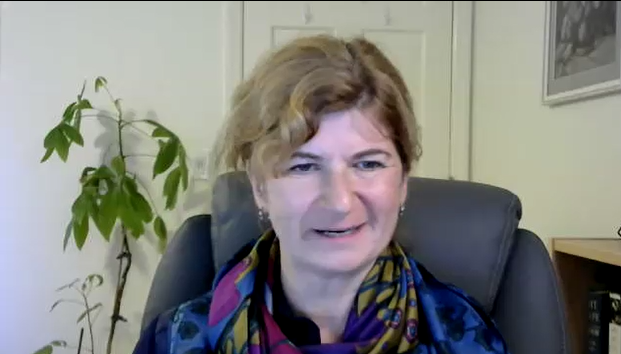Prepare to return to the ‘market of professionals’
A rising tide lifts all boats – but this one is starting to recede. After the post-Covid liquidity mania, the best of the best will have a chance to prove themselves once again.
The world’s stock pickers have been in a rut these last few years. A phenomenal bull market has given them little chance to add value, and the meteoric rise of the ETF has drained FUM from some of yesterday’s masters of the universe. But amidst the burgeoning war in Ukraine and an oncoming period of quantitative tightening, the stock picker will rise again.
“The market is becoming so difficult that it’s going to become a market of professionals – the stock pickers and allocators,” Irene Tunkel, chief US equity strategist at BCA Research, told the Inside Network’s Equities and Growth Symposium on Tuesday (April 5). “From the beginning of 2020 we had the liquidity tide that was lifting all boats. It was very easy to be an investor; we saw with the Reddit crowd where everybody was making money. It almost felt like “Why do you have to have a degree in this, why do you have to make a career out of this?”.”

“And I think that now we’re going to see why. And this is going to be the market of the professionals, and where a close look at different sectors, stocks and indices will really pay off. And there will continue to be these very pedestrian passive returns that the market is offering.”
Equity returns in recent years have largely been driven by a small core of US mega caps, mostly the FAANGs. And while that concentration is “masking people’s expectations”, according to Rob Da Silva (top left), head of manager research at SQM Research, “the devil is in the details.”
“When you look under the hood, the concentration in the US equity market is not about the weights in the index,” da Silva said. “The vast majority of the returns out of the S&P500 has come from less than ten stocks, including the FAANGs. If you pull those out of the index, it doesn’t look anywhere near as spectacular as everybody believes it is. If you take the US out of the MSCI and look at the rest, the performance difference is mind-boggling.”
“The rest has not been doing anywhere near those levels; it’s been doing more traditional long-term rates of return, and I don’t see any reason why you can’t expect into the future those more traditional long-term rates of return… I think extrapolating the S&P500 over the last five years into the future is not a great idea. But I think if you pull those stocks out and think about that history and try and extrapolate that out, that’s not so unreasonable.”
The last decade – and particularly the last few years – has also seen the emergence of the all-encompassing investment “theme”: a trend or idea in markets too good to ignore. Every asset owner “wants to talk about themes and what the next big one will be”, according to Willis Towers Watson’s head of equity research Leslie Mao (top right) – but they’re usually “late in the game.”
“Usually your managers get to know those themes much earlier in the life cycle of those themes,” Mao said. “When it comes to the listed equity space, themes come and go very quickly. If the theme is way too broad, everybody knows about it. If it lasts for a decade, that’s fine.”
“But if you want to be very specific about themes, valuation these days is driven by liquidity. Everybody jumps on the same theme, and all of a sudden you see a very expensive thematic play.”
da Silva also believes the future will be more about stock picking and theme picking than market timing, and that sectors won’t have as much value as a “label” as they used to.
“I think people think about stocks in relations to broader themes, like what’s going to be affected by inflation – and that cuts across a lot of sectors – what’s going to be affected by interest rates, what’s going to be affected by the oil price,” da Silva said. “It’s not just one sector that gets affected by these themes… Giving some thought to the thematic aspects of how you’re investing could pay some dividends as well.”











